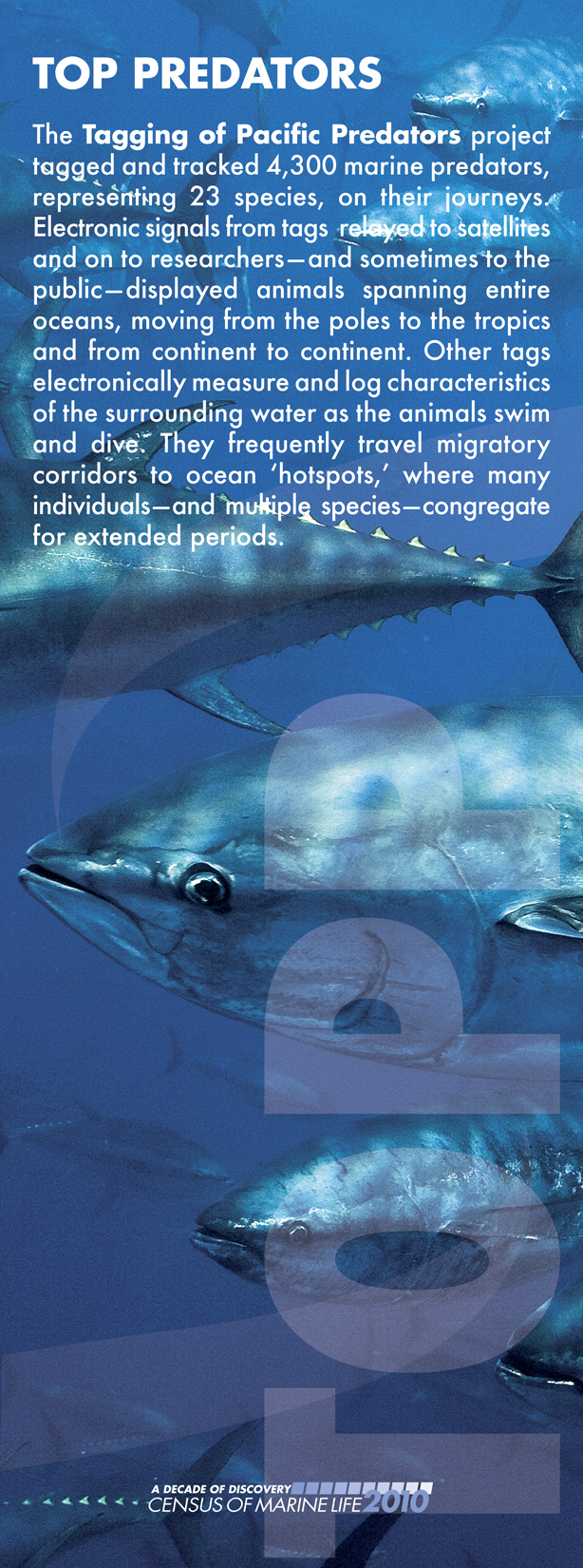Tagging of Pacific Predators (TOPP)
 The Tagging of Pacific Predators (TOPP) research program was a collaboration among scientists from the U.S., Australia, Canada, Mexico, Japan, France and the UK, that applied new technologies to understanding the environmental basis for movements and behaviors of large pelagic animals in the North Pacific. With new electronic tags, TOPP scientists followed the migrations of marine fishes, turtles, birds, pinnipeds, whales and Humboldt squid as they crisscrossed the Pacific basin. The results answered basic questions about the animals' biology, including where they feed and breed, and what migration corridors they use. By integrating these biological data with available oceanographic information, scientists began to explore how the dynamic ocean environment influences these basic life functions. By tagging a broad array of taxonomically diverse species, the scientists gained a broader understanding of how the North Pacific ecosystem functions.
The Tagging of Pacific Predators (TOPP) research program was a collaboration among scientists from the U.S., Australia, Canada, Mexico, Japan, France and the UK, that applied new technologies to understanding the environmental basis for movements and behaviors of large pelagic animals in the North Pacific. With new electronic tags, TOPP scientists followed the migrations of marine fishes, turtles, birds, pinnipeds, whales and Humboldt squid as they crisscrossed the Pacific basin. The results answered basic questions about the animals' biology, including where they feed and breed, and what migration corridors they use. By integrating these biological data with available oceanographic information, scientists began to explore how the dynamic ocean environment influences these basic life functions. By tagging a broad array of taxonomically diverse species, the scientists gained a broader understanding of how the North Pacific ecosystem functions.
Steven Bograd, United States
Dan Costa, United States
TOPP Project Website
Project Description
 Printer-friendly version
Printer-friendly version- 4274 reads
